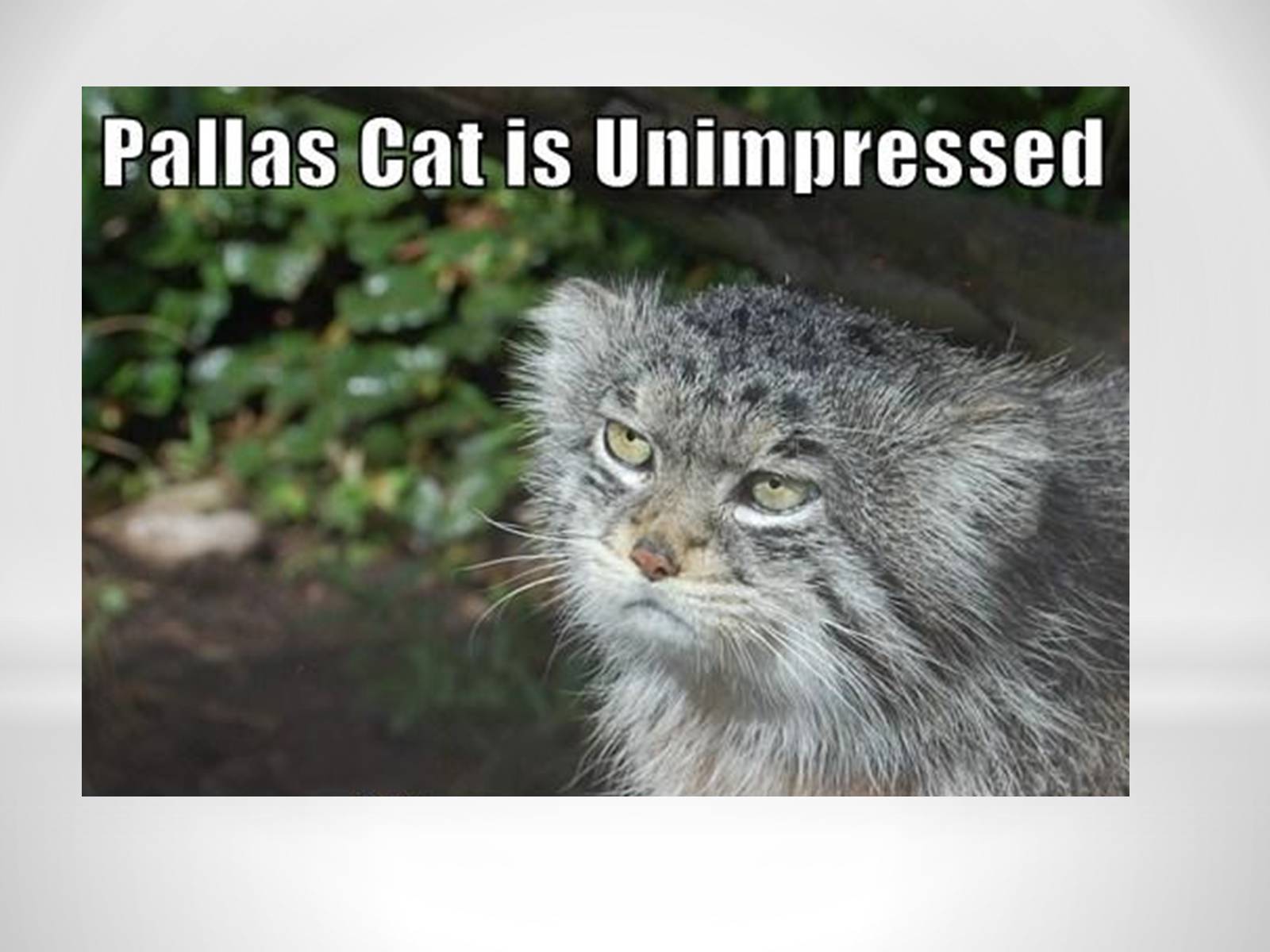- Головна
- Готові шкільні презентації
- Презентація на тему «Pallas’s Cat»
Презентація на тему «Pallas’s Cat»
196
Слайд #1
Pallas's Cat
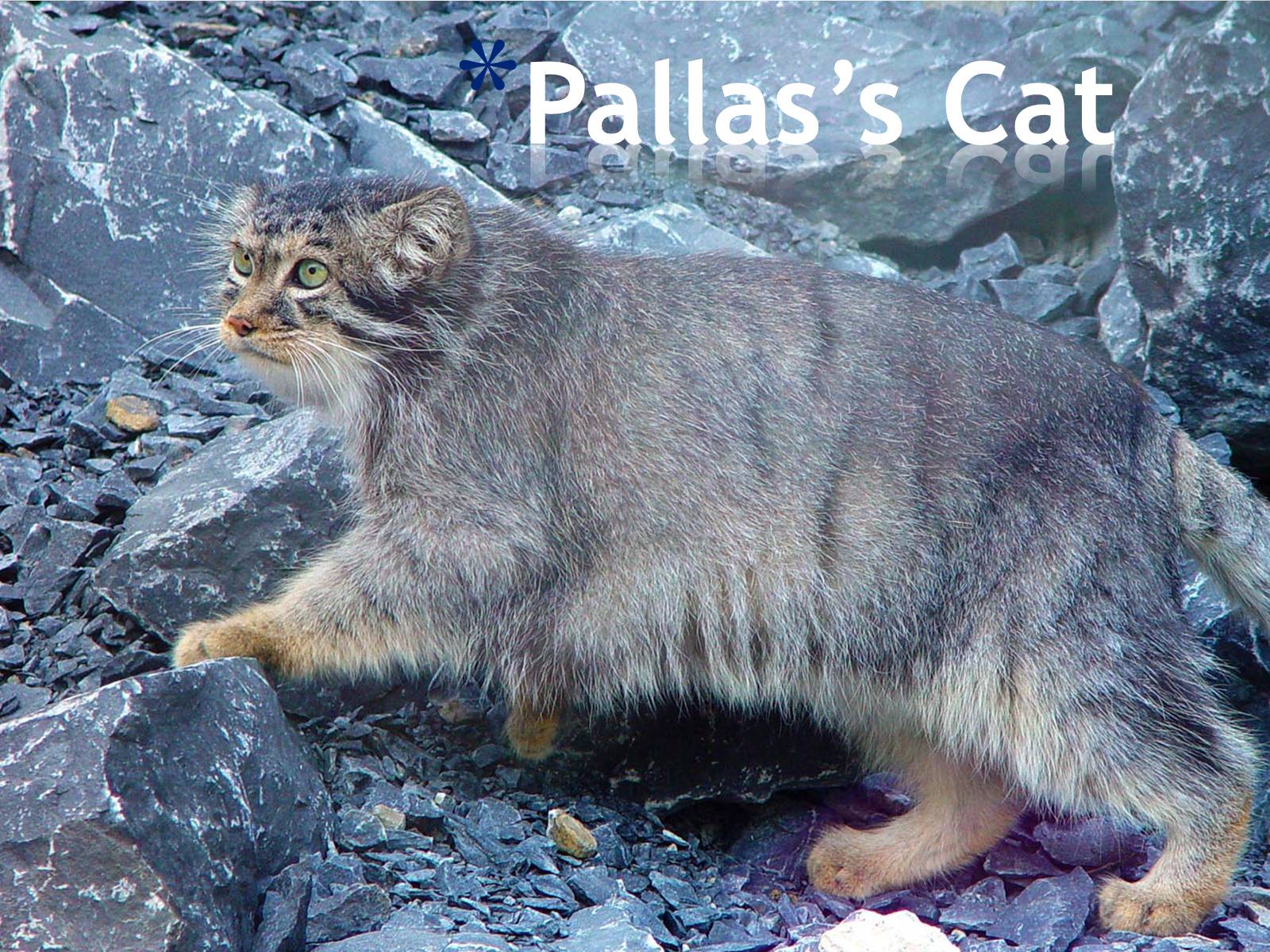
Слайд #2
Well-furred cats from the cold Asian steppes, Pallas's Cats Otocolobus manul are also called Manul, Steppe Cat or Rock Wildcat.
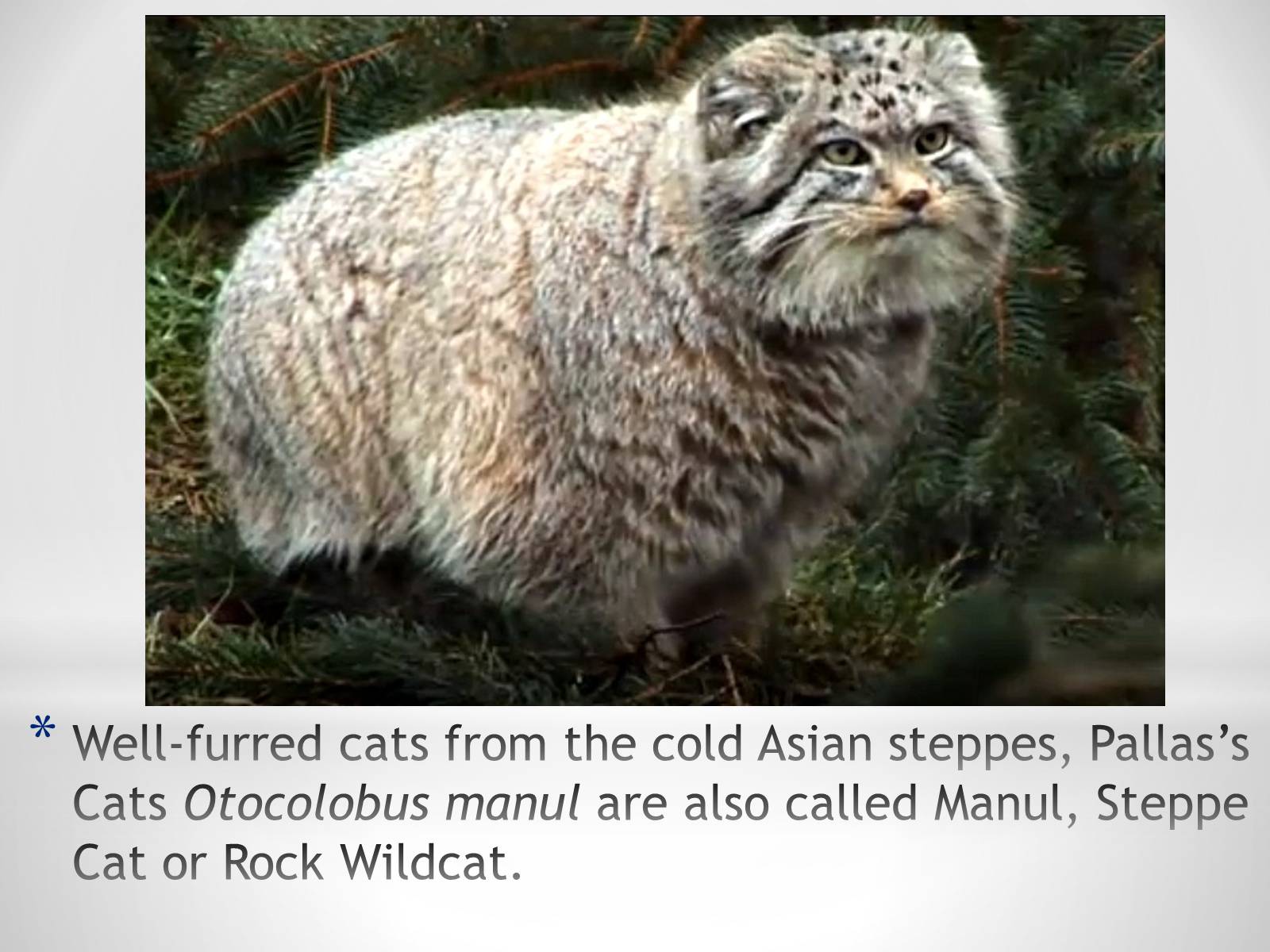
Слайд #3
Distribution
Manul occur in Central Asia, from the Caspian Sea through Iran, Afghanistan, Pakistan and northern India to central China, Mongolia and southern Russia.
Manul occur in Central Asia, from the Caspian Sea through Iran, Afghanistan, Pakistan and northern India to central China, Mongolia and southern Russia.

Слайд #4
Lifestyle
Pallas's cats are usually nocturnal but may come out during the day. They move around on their own in a territory that spans 2 to 3 miles. They den in caves, crevices and burrows made by other animals. The Pallas's cats' long, dense fur provides insulation against their snowy environment.
Pallas's cats are usually nocturnal but may come out during the day. They move around on their own in a territory that spans 2 to 3 miles. They den in caves, crevices and burrows made by other animals. The Pallas's cats' long, dense fur provides insulation against their snowy environment.
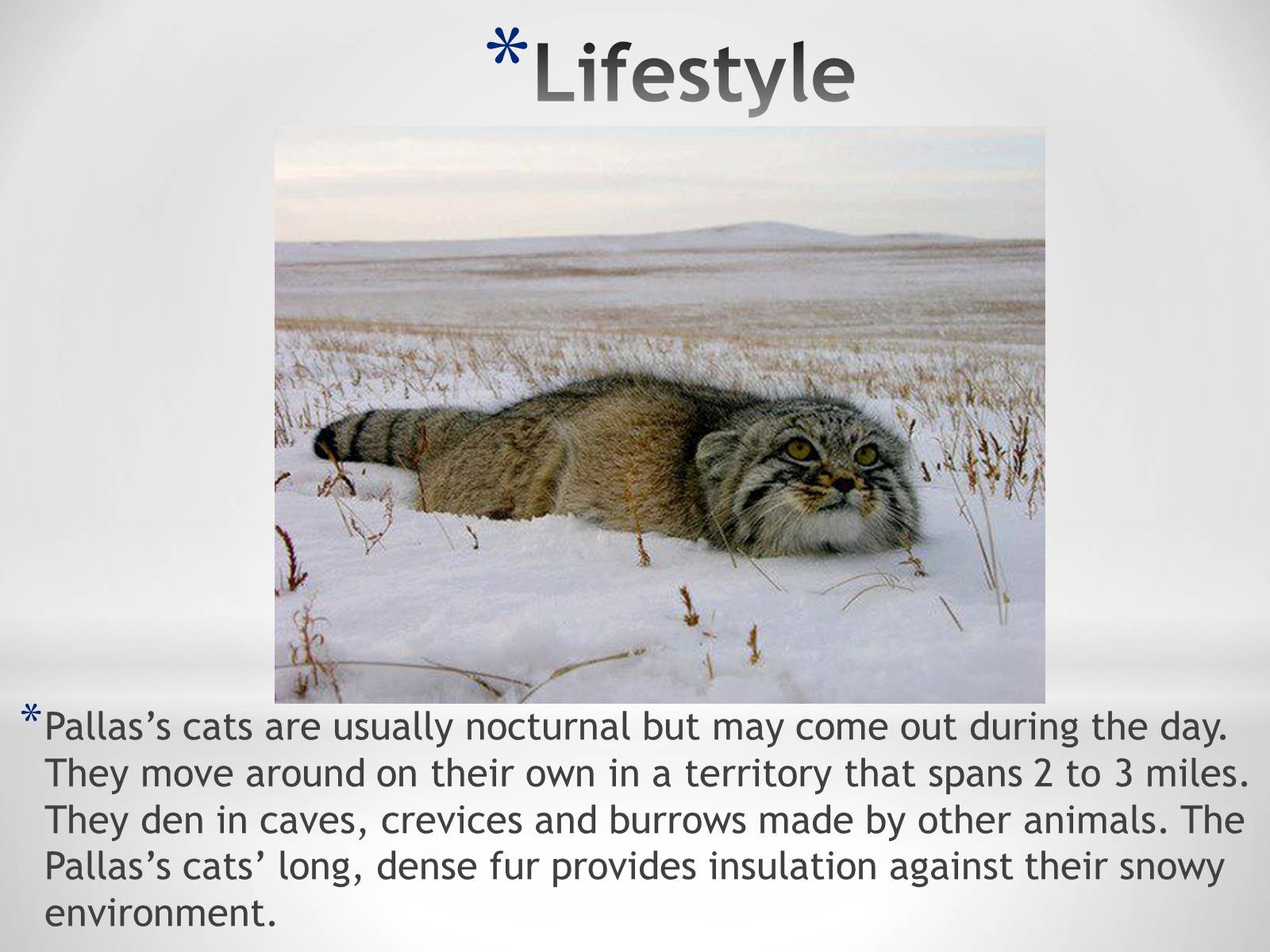
Слайд #5
Food
Pallas's cat eats small mammals such as rodents and pikas, and ground-dwelling birds.
Pallas's cat eats small mammals such as rodents and pikas, and ground-dwelling birds.
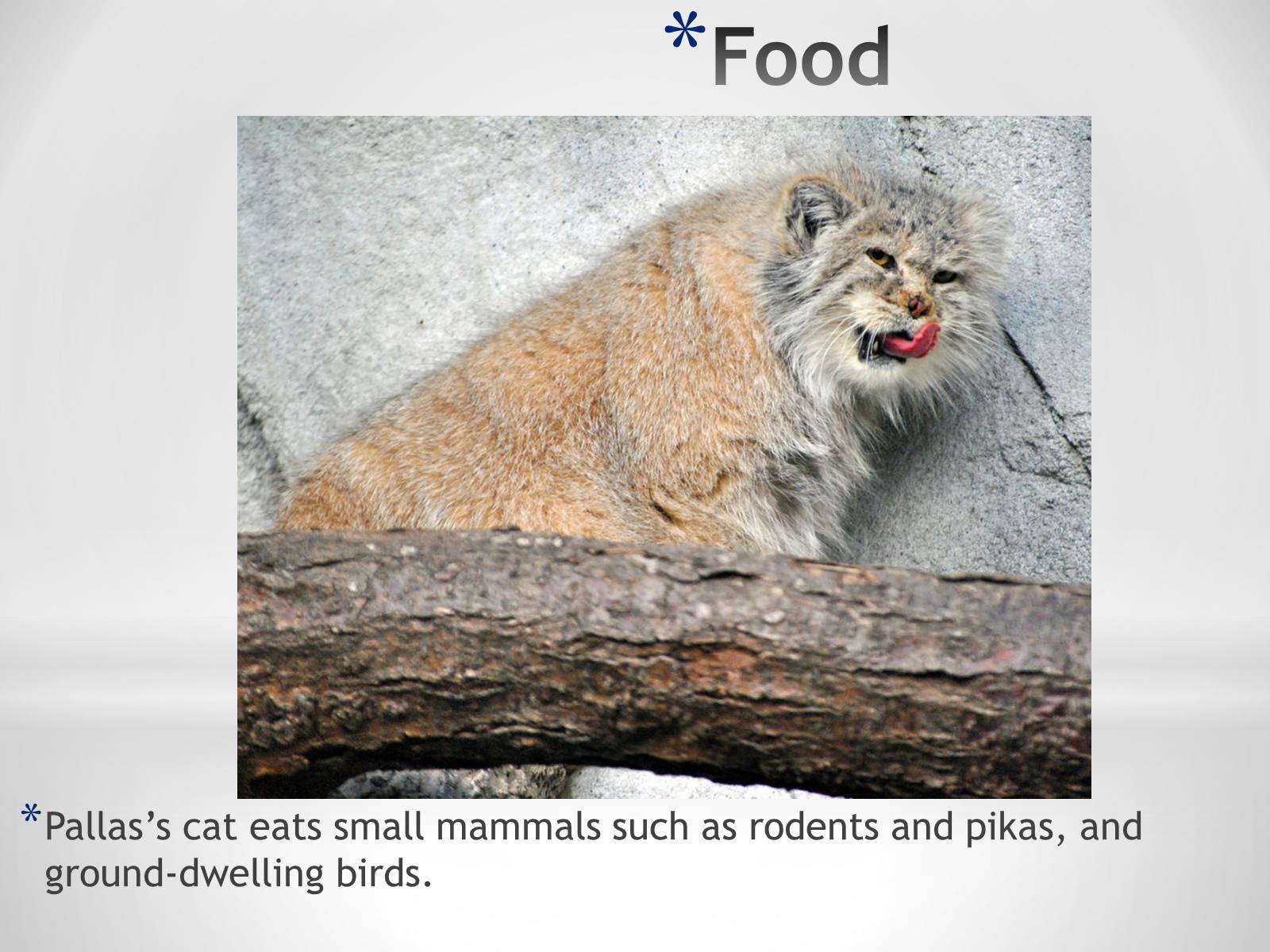
Слайд #6
Life Cycle
The Pallas's cat can usually lives to be 8 to 10 years old. Females give birth in late spring to litters of up to six young. In 4 to 6 months, the kittens are mature. Females are ready to be mothers at 1 year of age but little is known about the cats' mating behavior.
The Pallas's cat can usually lives to be 8 to 10 years old. Females give birth in late spring to litters of up to six young. In 4 to 6 months, the kittens are mature. Females are ready to be mothers at 1 year of age but little is known about the cats' mating behavior.
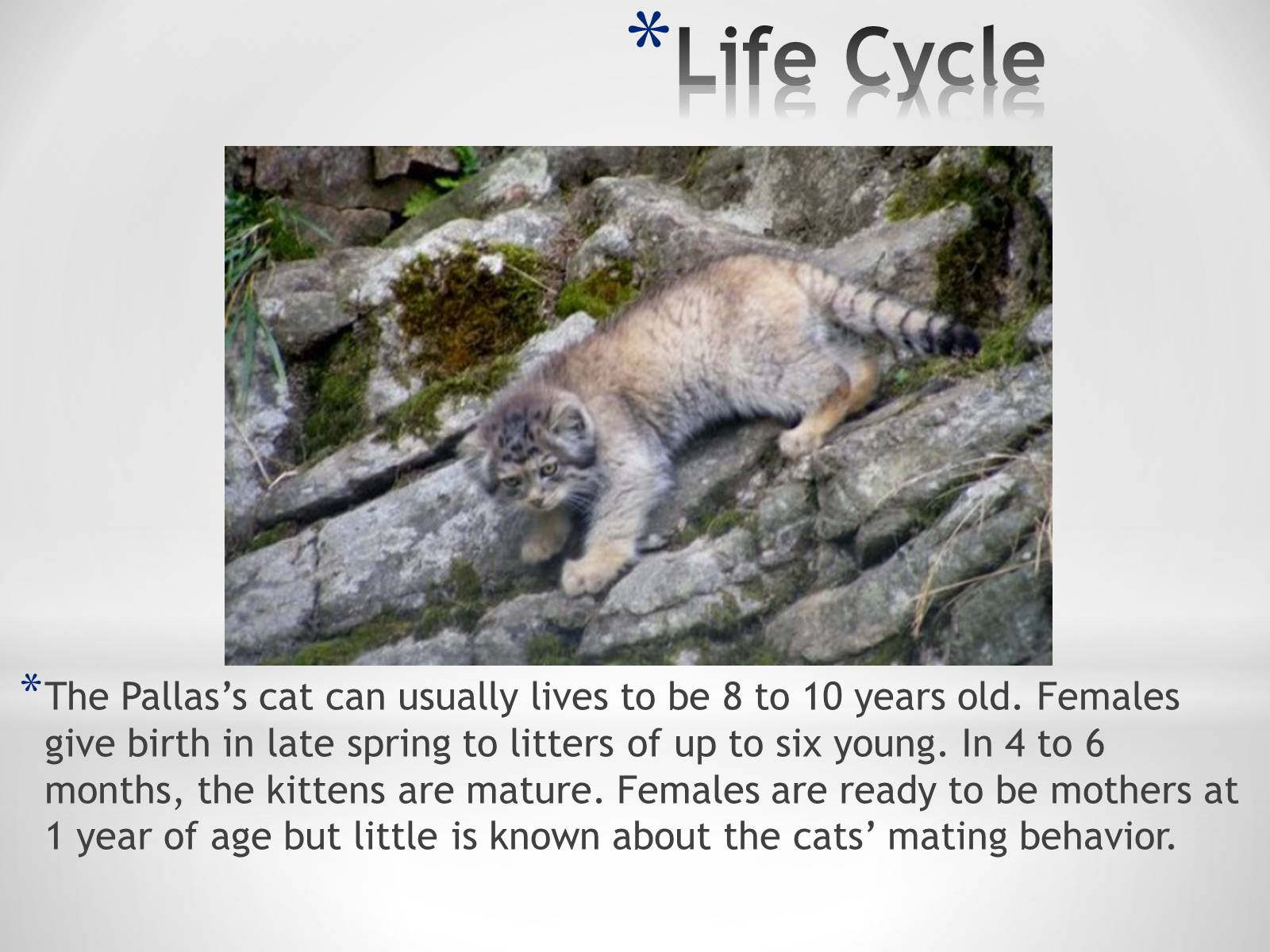
Слайд #7
Some of Neighbors
Gazelles, marmots, gray wolves, saiga antelope, steppe eagles, maral deer, desert dormouse, marbled polecat, Marco Polo sheep, great bustard, squirrels
Gazelles, marmots, gray wolves, saiga antelope, steppe eagles, maral deer, desert dormouse, marbled polecat, Marco Polo sheep, great bustard, squirrels
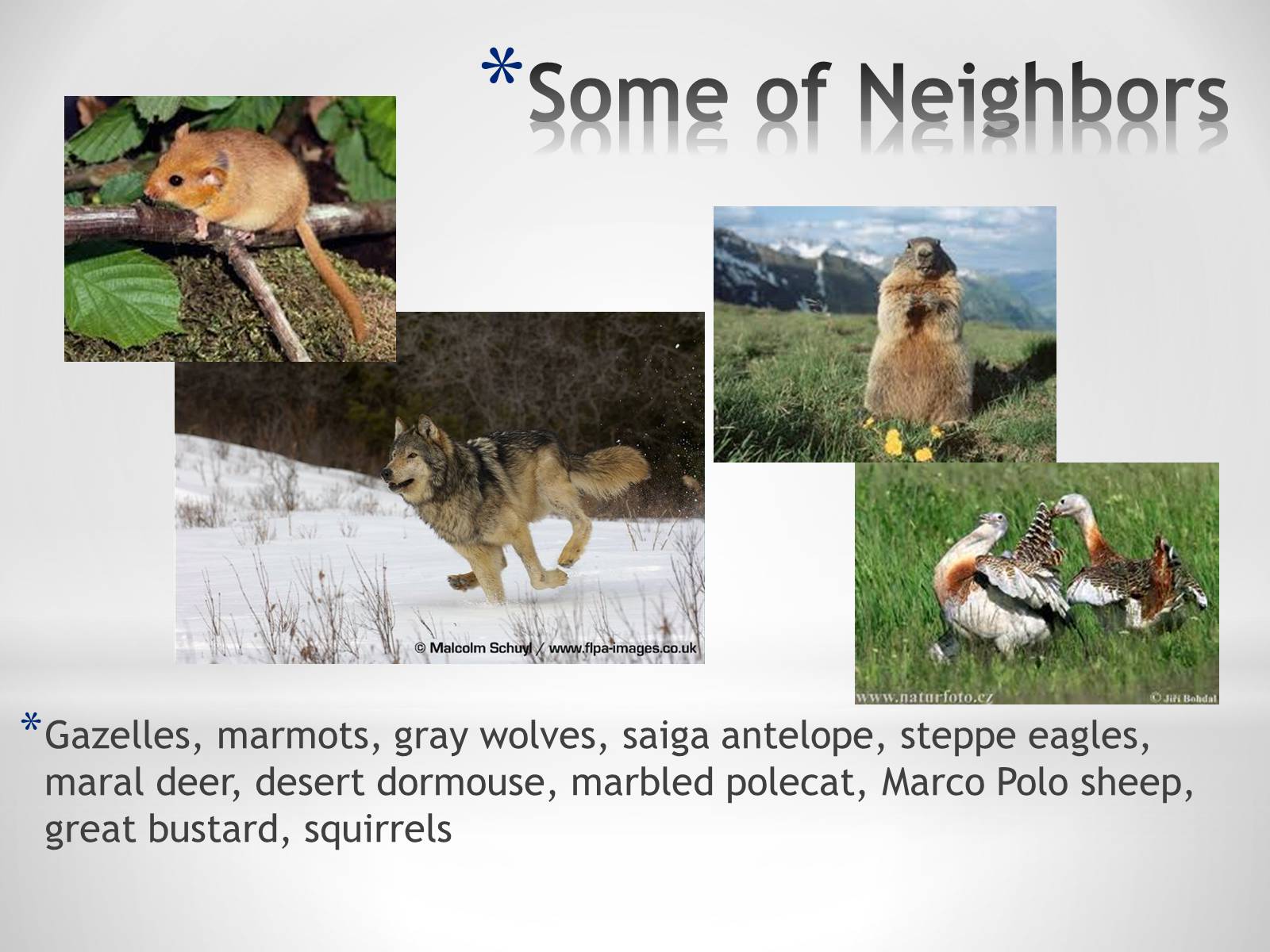
Слайд #8
Population Status & Threats
In the 1900s, fur traders hunted Pallas's cats for their fluffy coats. Eventually, laws were made to protect the cats. The hunt for their fur has slowed but still goes on, threatening the Pallas's cat's survival. Efforts to poison pikas to control their population also puts pressure on the cats.
In the 1900s, fur traders hunted Pallas's cats for their fluffy coats. Eventually, laws were made to protect the cats. The hunt for their fur has slowed but still goes on, threatening the Pallas's cat's survival. Efforts to poison pikas to control their population also puts pressure on the cats.
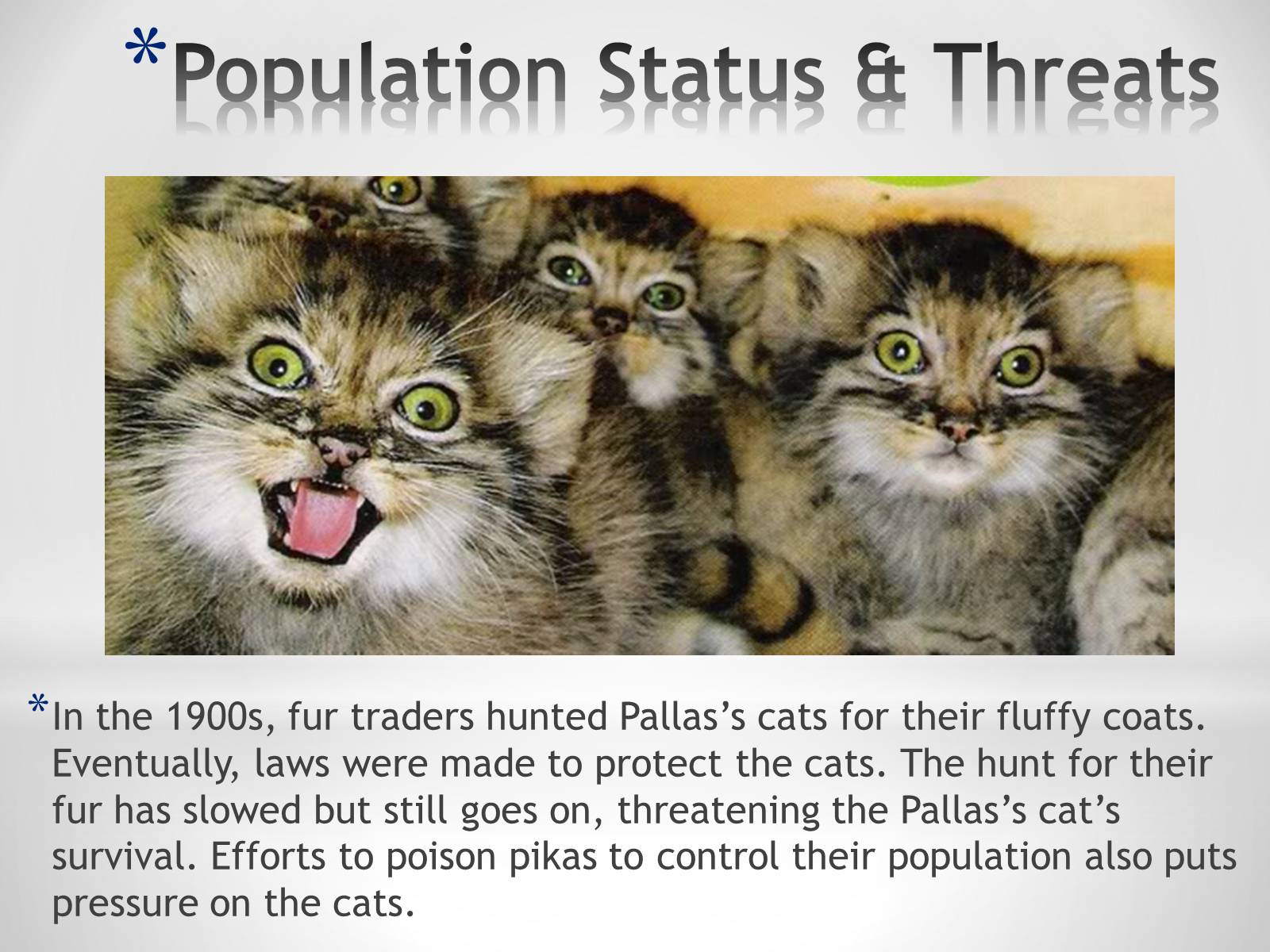
Слайд #9
WCS Conservation Efforts
WCS(Wildlife Conservation Society) is working with government officials and scientists in Central Asia to eventually create an International Peace Park that would protect animals in the region.
WCS(Wildlife Conservation Society) is working with government officials and scientists in Central Asia to eventually create an International Peace Park that would protect animals in the region.
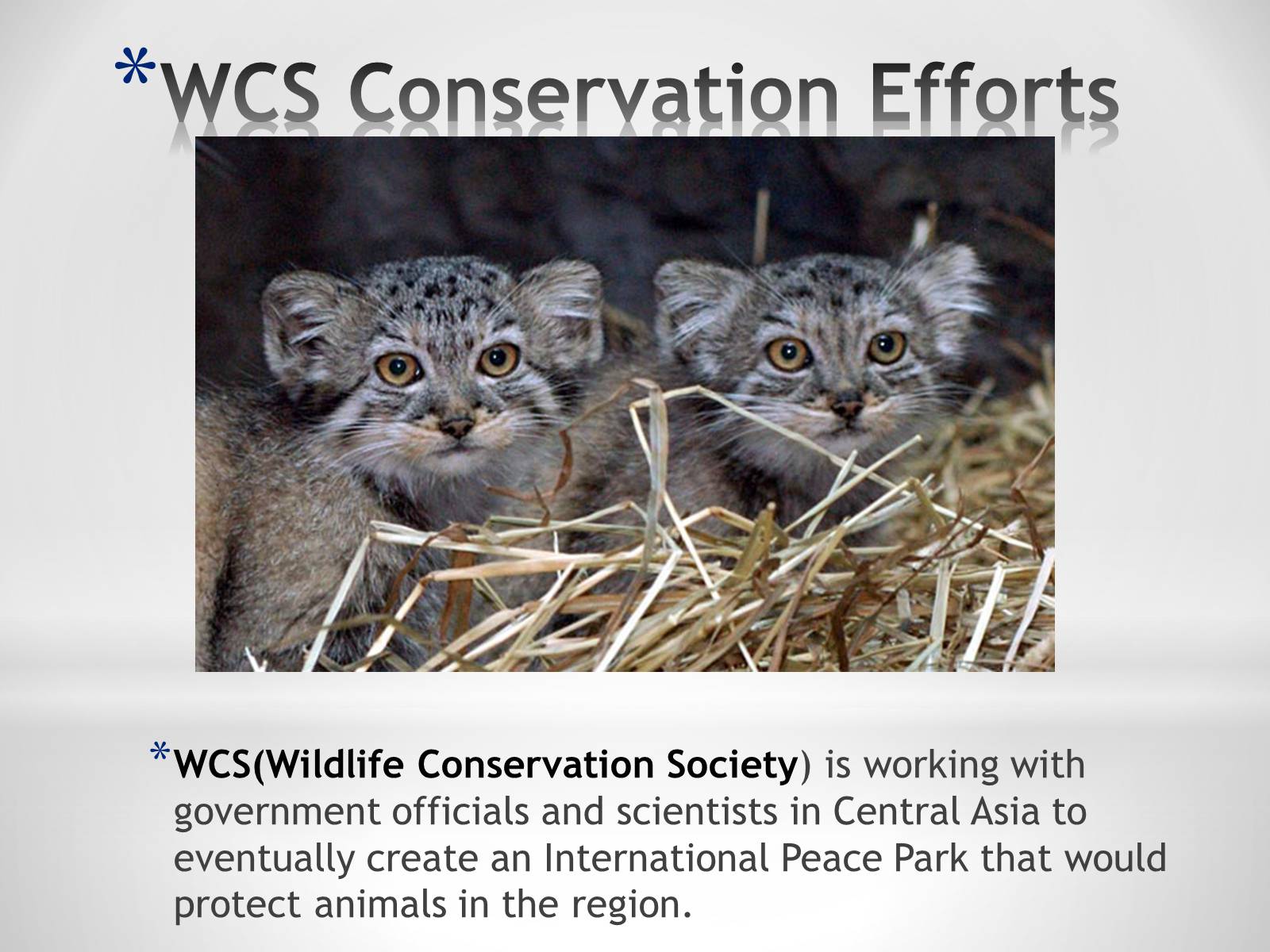
Слайд #10
The best hope for Pallas' Cat is that the inaccessibility and desolation of their habitat will help keep their numbers from being too decimated. Conservation measures must include improving law enforcement efforts and revamping the hunting permit system.
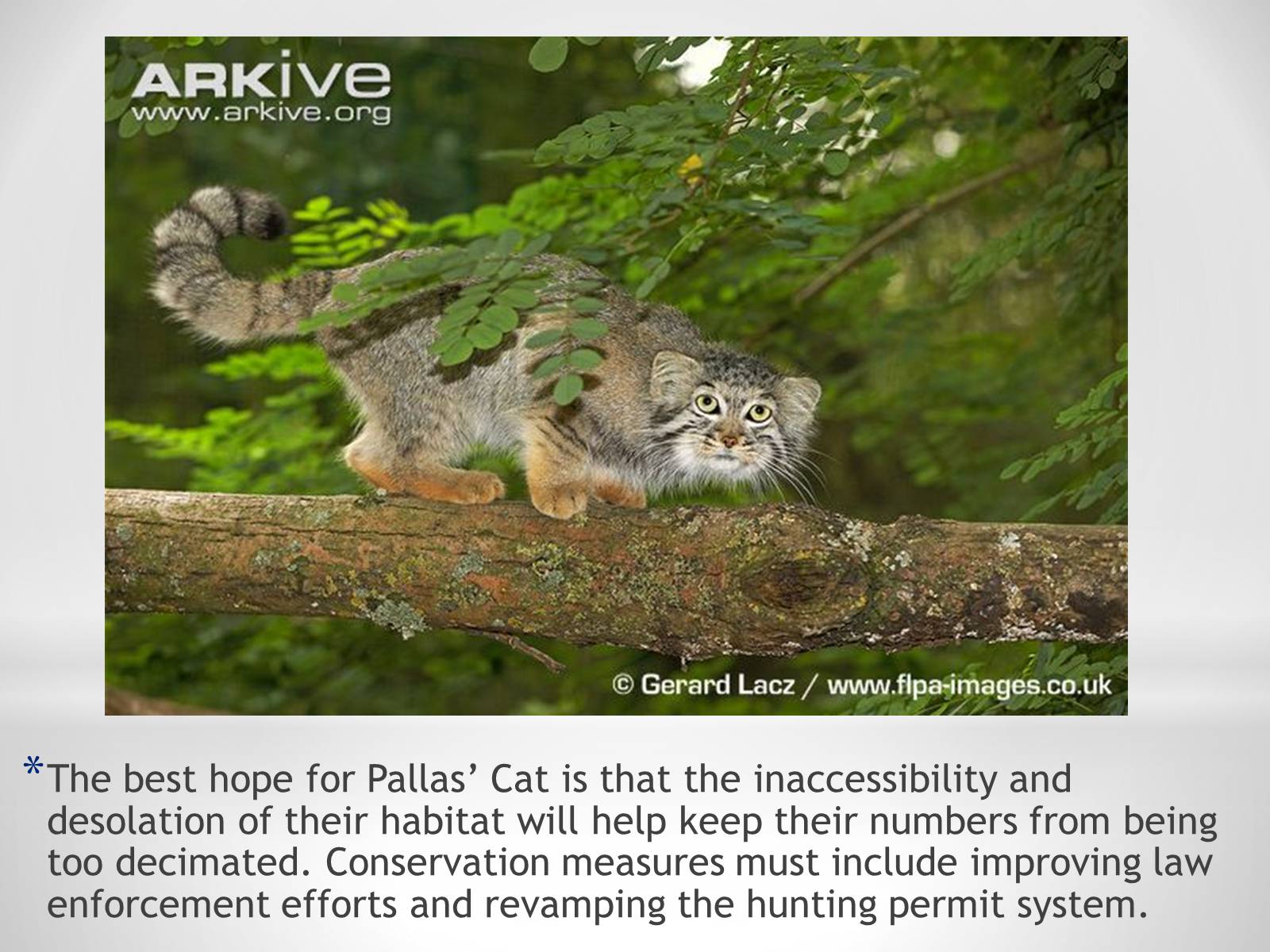
Слайд #11
The best hope for Pallas' Cat is that the inaccessibility and desolation of their habitat will help keep their numbers from being too decimated. Conservation measures must include improving law enforcement efforts and revamping the hunting permit system.
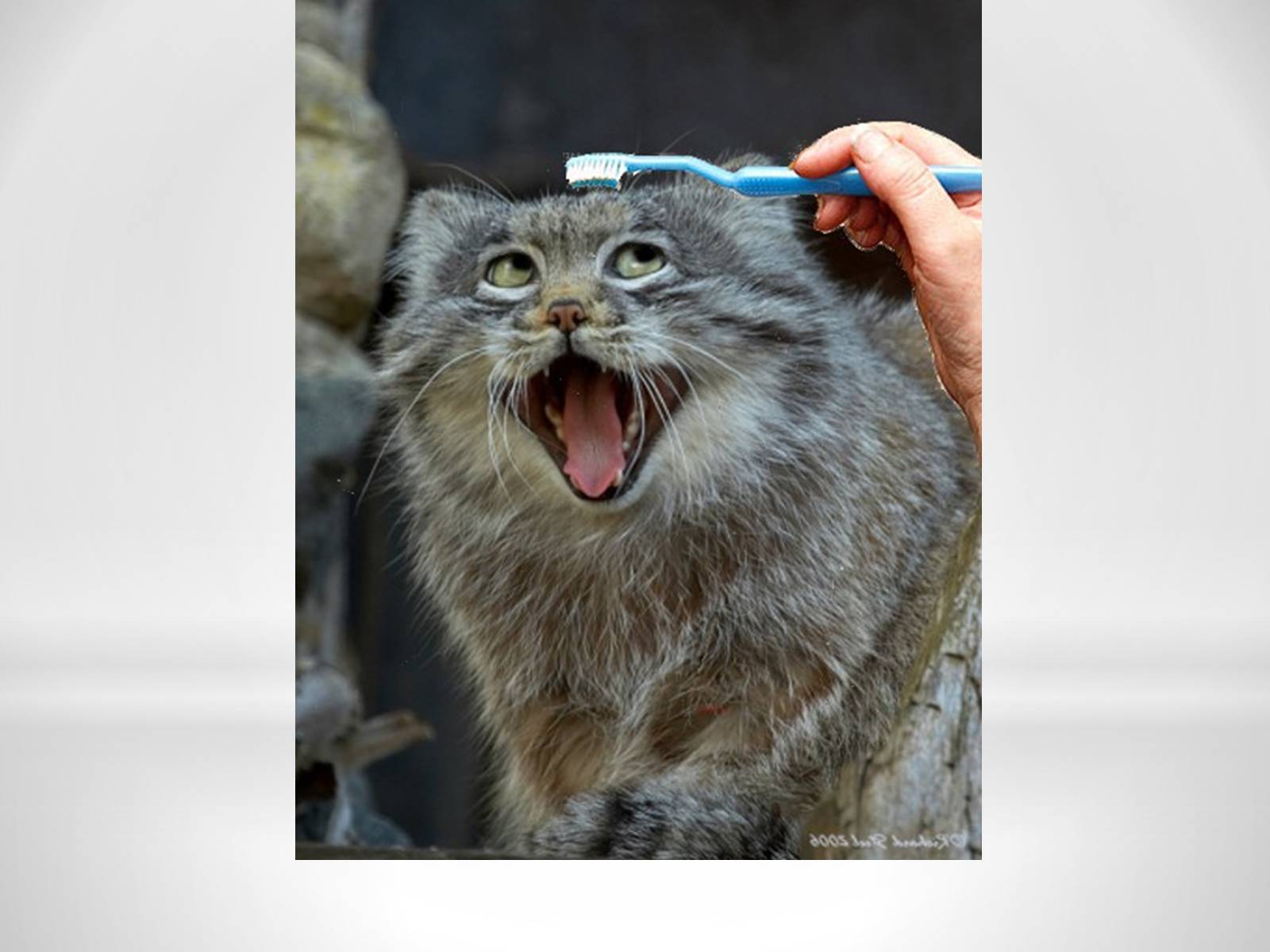
Слайд #12
The best hope for Pallas' Cat is that the inaccessibility and desolation of their habitat will help keep their numbers from being too decimated. Conservation measures must include improving law enforcement efforts and revamping the hunting permit system.
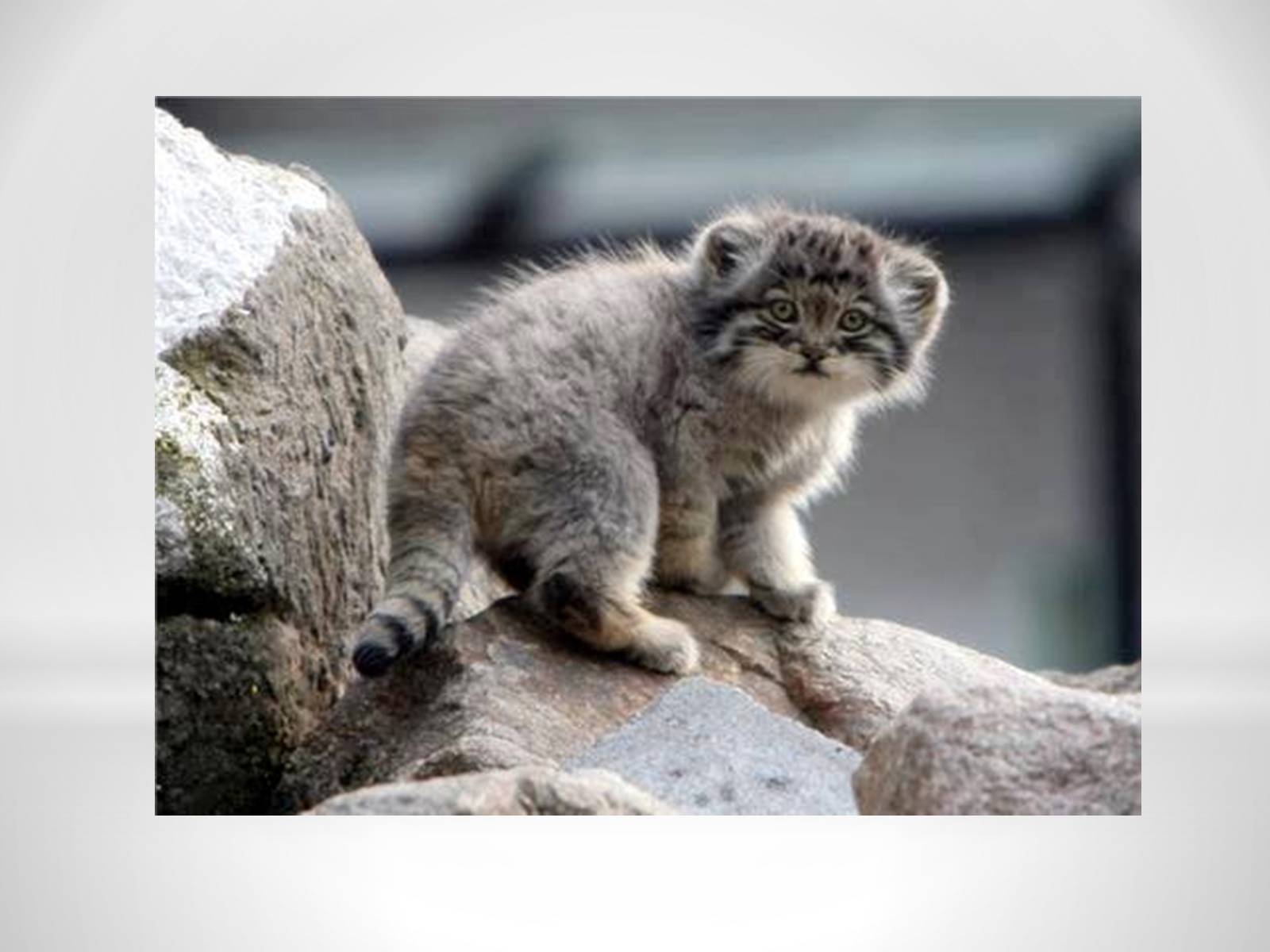
Слайд #13
